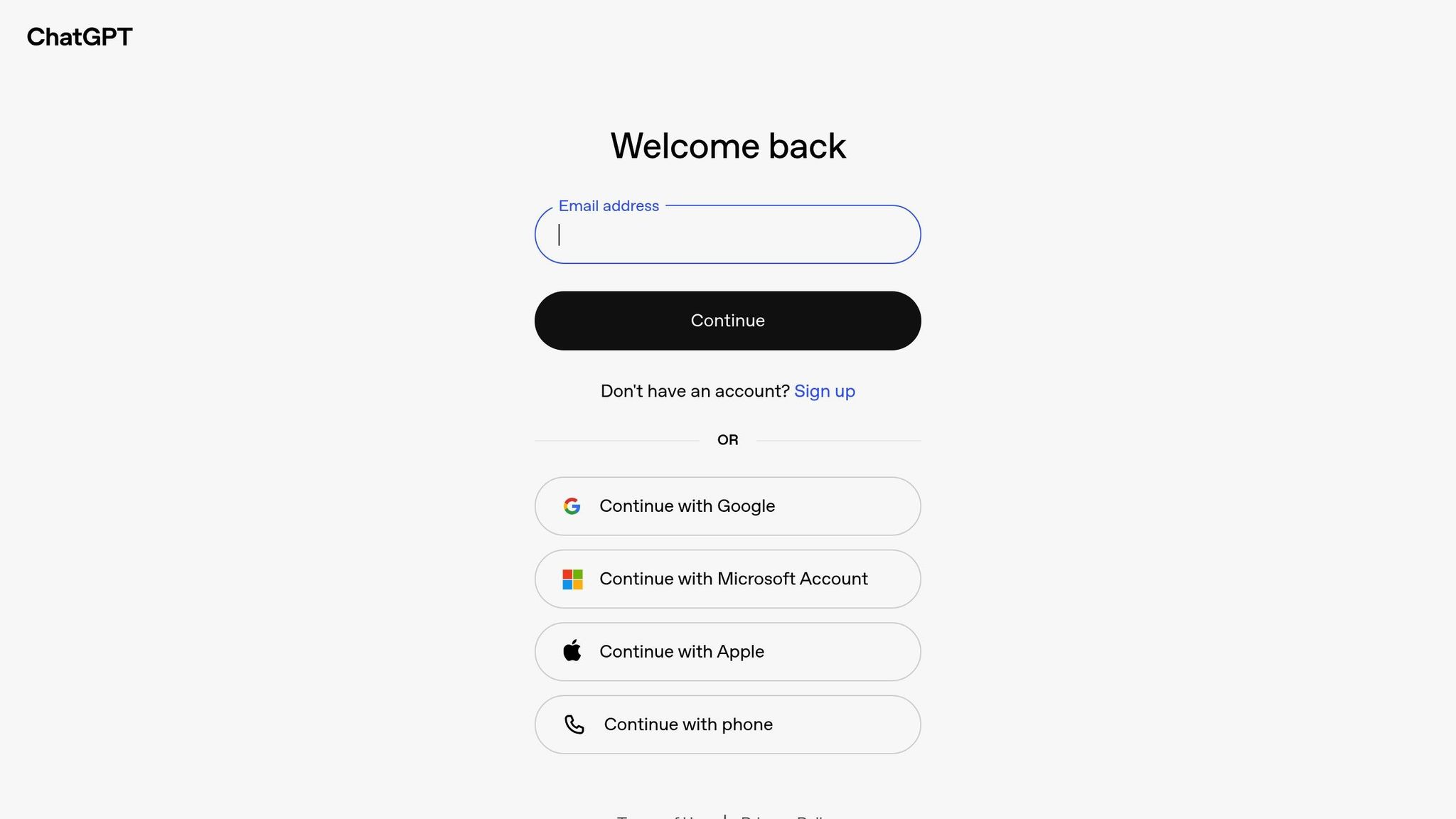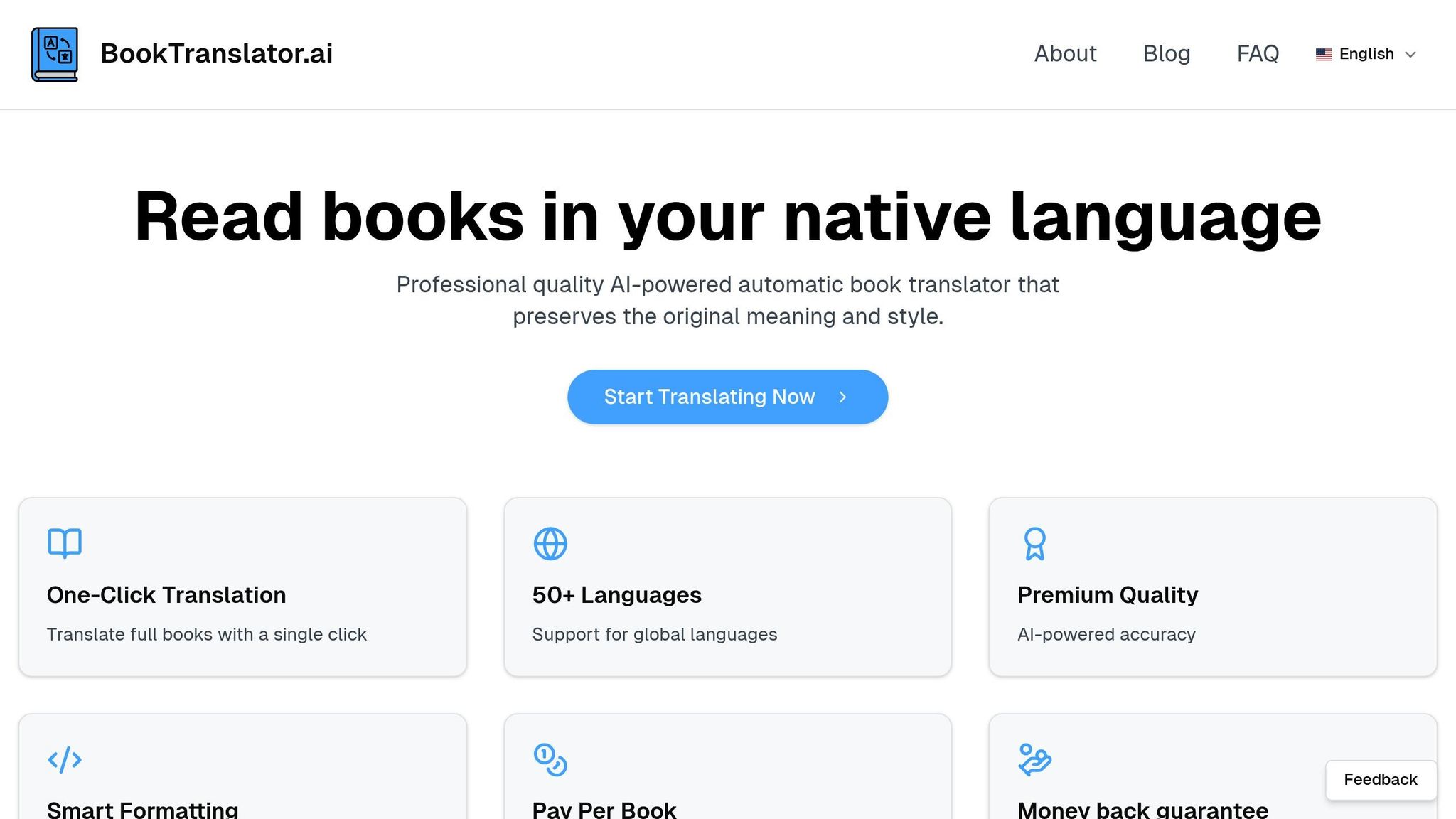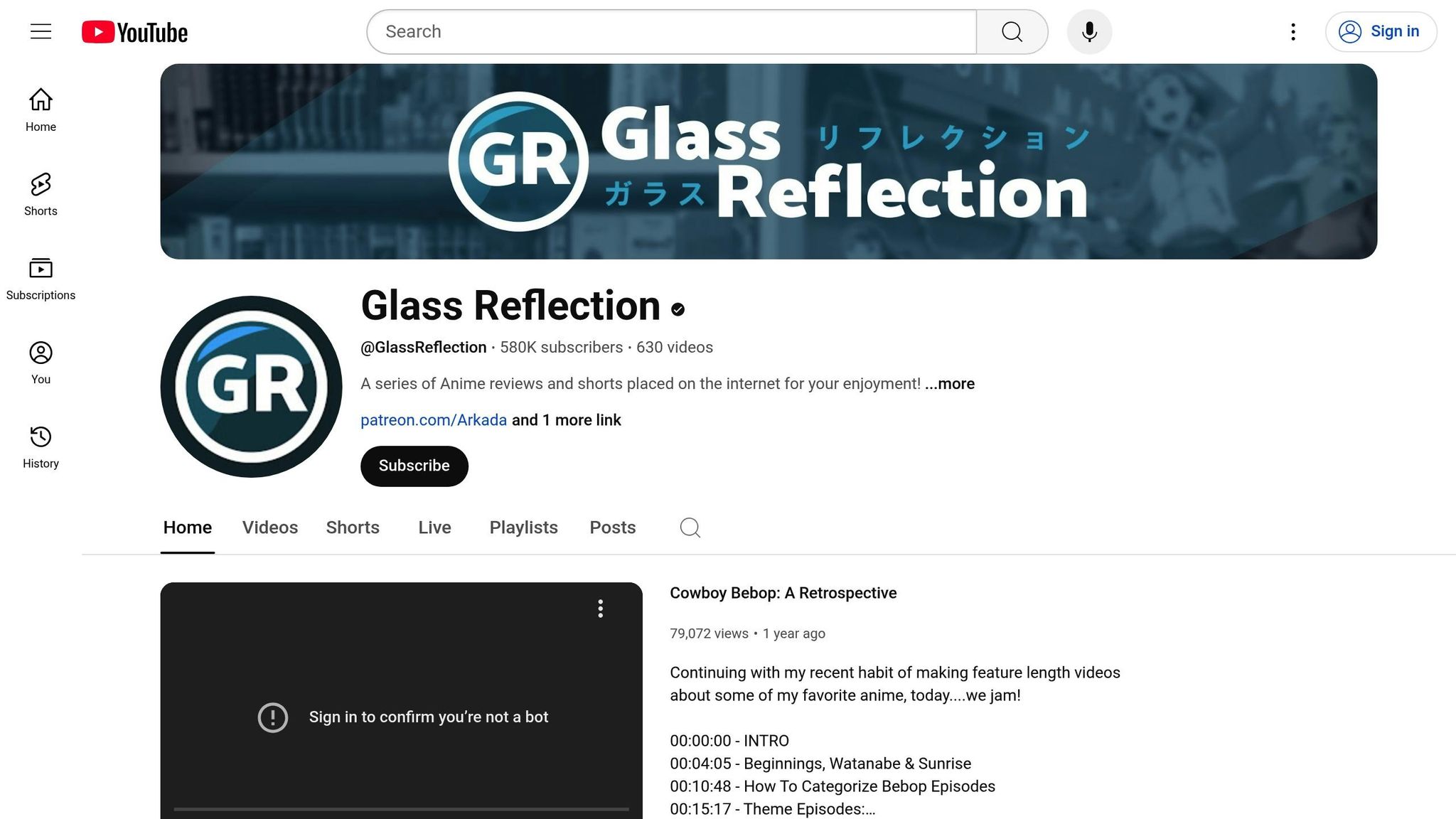
Why Reddit Users Are Abandoning ChatGPT for Novel Translation (And What They're Using Instead)
Reddit users are moving away from ChatGPT for translating novels due to issues like inconsistent character names, loss of tone, and formatting errors. Many find its output too literal and lacking in depth, especially for complex texts. BookTranslator.ai has emerged as a preferred alternative, offering AI-driven tools that prioritize accuracy, style preservation, and structural integrity for literary works. With pricing starting at $5.99 per 100,000 words, it delivers polished translations with minimal editing required.
Key Issues with ChatGPT:

- Inconsistent Names: Characters' names often change throughout the text.
- Loss of Tone: Struggles to maintain the author's voice or literary style.
- Formatting Problems: Disrupts dialogue, chapter breaks, and structure.
- Cultural References: Often mishandles idioms, humor, and nuanced phrases.
- Editing Time: Requires extensive post-translation corrections.
Why Users Prefer BookTranslator.ai:

- High Accuracy: Offers refined translations guided by AI analysis.
- Style Preservation: Retains the author's voice and narrative flow.
- Formatting Integrity: Ensures structural consistency across the book.
- Cost-Effective: Starts at $5.99 per 100,000 words with minimal editing needed.
Quick Comparison:
| Feature | ChatGPT | BookTranslator.ai |
|---|---|---|
| Accuracy | Often requires manual editing | High precision with AI refinement |
| Style Preservation | Struggles with literary voices | Maintains tone and style |
| Formatting | Requires manual adjustments | Retains original layout |
| Pricing | Low cost, but time-intensive | $5.99–$9.99 per 100,000 words |
Reddit's shift highlights the demand for tools designed specifically for literary translations. For those prioritizing quality and efficiency, BookTranslator.ai is becoming the go-to choice.
I Used AI to Translate a Webnovel from Japanese... | Glass Reflection

Problems with ChatGPT for Novel Translation
Reddit users have pointed out several recurring issues when using ChatGPT for translating novels. These challenges go beyond simple mistranslations and touch on the deeper complexities of literary translation. Here’s a closer look at the most common problems:
Inconsistent character names are a frequent complaint. For example, a character named "Alexander" in one chapter might morph into "Alex" or even "Alexandre" in later chapters. Such inconsistencies disrupt the flow and can pull readers out of the story.
Loss of the author’s voice is another significant issue. ChatGPT often flattens distinctive styles, turning a witty, sarcastic narrator into something dull and generic. Similarly, poetic or lyrical prose can lose its rhythm and elegance, becoming clunky and mechanical.
Memory limitations create hurdles for longer works. ChatGPT struggles to maintain continuity across an entire novel. For instance, a magical system explained in chapter two might be inconsistently translated or entirely misrepresented by chapter fifteen. This lack of consistency can confuse readers and degrade the overall quality of the translation.
Cultural nuances are often mishandled. Subtle cultural references, idioms, and wordplay frequently get lost in translation. Humor falls flat, and culturally specific ideas are often translated literally instead of being adapted to resonate with the target audience.
Formatting and structure issues further complicate the process. Because ChatGPT processes text in chunks, it can disrupt chapter breaks, dialogue formatting, and special text elements. Users often have to spend significant time reformatting the output to match the original structure of the book.
Dialogue consistency is another weak spot. ChatGPT struggles to give characters distinct voices. Regardless of their background, personality, or education level, characters often end up sounding the same. Regional dialects, unique speech patterns, and individual vocabulary choices are frequently erased in translation.
Lastly, time and cost inefficiency becomes evident when factoring in the extensive editing required. While ChatGPT might seem like a quick fix, the hours spent reviewing, correcting, and polishing its output often surpass the time it would take to use tools specifically designed for literary translation.
These challenges highlight why many users turn to platforms tailored for literary translation, which are better equipped to handle the nuances of this complex task.
1. ChatGPT
ChatGPT has some well-known limitations, especially when it comes to translating nuanced literary texts. While it can manage straightforward passages with relative ease, many Reddit users have pointed out its struggles with more intricate and layered content. Let’s take a closer look at where ChatGPT shines and where it falls short in literary translation.
Translation Accuracy
When it comes to accuracy, ChatGPT often stumbles with complex material. While it can handle simple stories or direct sentences, it tends to produce overly literal translations. This approach often strips away deeper meanings, missing out on metaphors, symbolism, or the broader narrative flow. As a result, the translated text can feel inconsistent and disconnected from the original intent.
Preservation of Literary Style
Capturing an author’s unique voice is another area where ChatGPT struggles. Instead of preserving distinctive styles, it tends to "flatten" the prose, making everything sound the same. This is especially problematic for works that rely on experimental storytelling, unconventional dialogue, or regional dialects. These elements often disappear entirely, affecting the tone, pacing, and emotional depth of the translation.
Formatting Integrity
Formatting is another weak spot. Since ChatGPT processes text in chunks, it sometimes fails to maintain structural consistency. Dialogue formatting, in particular, can become problematic when adapting to different language conventions. Issues with quotation marks, dialogue tags, and paragraph breaks are common, which can disrupt the flow of the text.
Cost Effectiveness
At first glance, ChatGPT might seem like a budget-friendly option for translations. However, the reality is that its output often requires significant post-translation editing to fix errors and inconsistencies. This extra effort can make the process time-consuming and labor-intensive, especially for large projects. In comparison, specialized platforms like BookTranslator.ai are designed to address these specific challenges, offering a more streamlined solution.
sbb-itb-0c0385d
2. BookTranslator.ai
BookTranslator.ai has become a favorite among Reddit users for literary translation, addressing common challenges often associated with AI translation tools.
Translation Accuracy
At the core of BookTranslator.ai is its AI Literary Analysis Engine, designed to tackle accuracy issues head-on. Before translating, the platform creates a custom "Translation Blueprint", which maps out themes, character arcs, and stylistic elements. This ensures that every translation decision is guided by a deep understanding of the text's context.
The platform also employs an Iterative 5-Pass Refinement System to refine translations step by step, focusing on grammar, fluency, tone, and style. This meticulous process results in polished translations that stay true to the original work.
In June 2025, BookTranslator.ai's capabilities were put to the test when Google's Gemini 2.5 Pro model evaluated its translation of Osamu Dazai's Ningen Shikkaku (No Longer Human). Gemini deemed the translation "Best", praising it as "fluent, faithful, and emotionally rich" and even noting that it surpassed Donald Keene's highly regarded human translation [1].
Preservation of Literary Style
Maintaining the literary style of the original text is a top priority for BookTranslator.ai. To achieve this, it uses tools like the Naturalizer and the AI Editorial Council. The Naturalizer acts as a stylist, offering suggestions to make the translation feel as though it was originally written in the target language. Meanwhile, the AI Editorial Council - featuring models like Gemini, Claude, and GPT-4o - reviews these suggestions and provides feedback on their impact.
This approach has proven effective. For example, when Google's Gemini 2.5 Pro reviewed BookTranslator.ai's unedited English translation of Édouard Laboulaye's The State and Its Limits, it commented, "Given the consistency and elegance, it's more straightforward to attribute it to a talented human translator" [1].
The platform also includes a Context Viewer, which allows users to see AI suggestions highlighted within the full paragraph. This feature enables users to compare the translation with the original manuscript side by side, ensuring that stylistic details are preserved throughout the process.
Formatting Integrity
To ensure consistency across the entire book, BookTranslator.ai uses The Threadweaver to audit formatting for terms, voices, and themes. This tool guarantees the translated text reads as a cohesive whole, not as a patchwork of unrelated paragraphs.
Additionally, the AI Final Review Engine provides a final layer of quality control by comparing the translated text with the original source. This step identifies any errors, inconsistencies, or areas for improvement, ensuring the translation is publication-ready.
Cost Effectiveness
BookTranslator.ai offers clear and affordable pricing: $5.99 per 100,000 words for the Basic plan and $9.99 per 100,000 words for the Pro plan. It supports EPUB files up to 50MB and includes a money-back guarantee. With its specialized multi-pass refinement system and robust quality control features, the platform delivers high-quality, publication-ready translations at a fraction of the cost of traditional methods, making it an efficient option for literary translation.
Advantages and Disadvantages
Taking a closer look at the platforms discussed earlier, this section breaks down the key benefits and limitations of ChatGPT and BookTranslator.ai when it comes to novel translation. Each platform brings its own set of strengths and compromises, making the choice dependent on your specific needs.
ChatGPT stands out for its affordability, making it a budget-friendly option. However, its translations often require additional editing to ensure the narrative flows smoothly and the literary voice is consistent throughout.
On the other hand, BookTranslator.ai is purpose-built for literary translation. Its focus on preserving the original tone, style, and structure of books simplifies the process with a one-click solution. This specialization means less post-translation editing is usually needed. The pricing, though higher - ranging from $5.99 to $9.99 per 100,000 words - reflects its commitment to delivering high-quality translations, backed by a money-back guarantee.
Here’s a quick comparison of the platforms:
| Feature | ChatGPT | BookTranslator.ai |
|---|---|---|
| Accuracy | Low cost but may need manual editing to ensure consistency | High accuracy with a focus on preserving meaning, style, and structure |
| Style Preservation | May struggle to capture unique literary voices; extra refinement often needed | Retains the original literary voice and applies smart formatting |
| Formatting | Requires manual adjustments to layout | Automatically retains original layout |
| Cost | Low cost | $5.99–$9.99 per 100,000 words, includes a money-back guarantee |
Conclusion
Reddit users are moving away from ChatGPT for novel translation, citing issues with maintaining tone, formatting, and consistency.
In response, specialized tools like BookTranslator.ai address these shortcomings directly. With a one-click translation feature and a money-back guarantee, it minimizes the need for extensive post-editing, offering the dependable results users are looking for.
Priced at $5.99–$9.99 per 100,000 words, it provides a cost-effective alternative that saves time and effort compared to manual editing. For those prioritizing both efficiency and high-quality translations, this pricing often proves to be a smart investment.
The shift in AI-driven novel translation highlights the growing demand for tools that respect literary nuance and context. As conversations around these priorities continue, more Reddit users are turning to specialized solutions like BookTranslator.ai for their consistent and reliable performance.
FAQs
What makes BookTranslator.ai better suited for translating novels than ChatGPT?
BookTranslator.ai is built specifically to tackle the unique demands of literary translations, ensuring that the style, tone, and subtle nuances of the original text remain intact. This is especially crucial for novels, where the emotional depth and artistic essence of the writing are key to its impact.
What makes BookTranslator.ai stand out from general AI tools is its focus on genre-specific translation. It fine-tunes the output to align with the expectations of the target audience, capturing the author's voice and intent with precision. Its ability to respect cultural contexts while preserving the literary quality of the work makes it a reliable choice for translating novels with care and authenticity.
How does BookTranslator.ai maintain an author's unique style and tone when translating novels?
BookTranslator.ai focuses on keeping an author's unique literary voice and tone intact during translation. Using advanced AI algorithms trained on a wide range of linguistic and literary data, it captures subtle elements like voice, mood, and writing style, ensuring they are faithfully represented in the translated text.
The platform also offers users the option to provide specific input or preferences, allowing for adjustments that align the translation with the original work's artistic vision. This careful approach helps preserve the story's authenticity and emotional resonance, no matter the language.
Why is BookTranslator.ai a more cost-effective option for translating novels compared to ChatGPT?
BookTranslator.ai stands out as a budget-friendly option for translating novels, offering clear pricing starting at just $5.99 for 100,000 words. This makes it an attractive choice for large-scale projects, especially when compared to alternatives like ChatGPT, which may rack up higher costs due to word limits or extra usage fees.
On top of that, BookTranslator.ai provides precise translations that require little post-editing, helping you save both time and money. Its combination of efficiency and predictable pricing makes it a smart, long-term solution for handling extensive texts like novels.